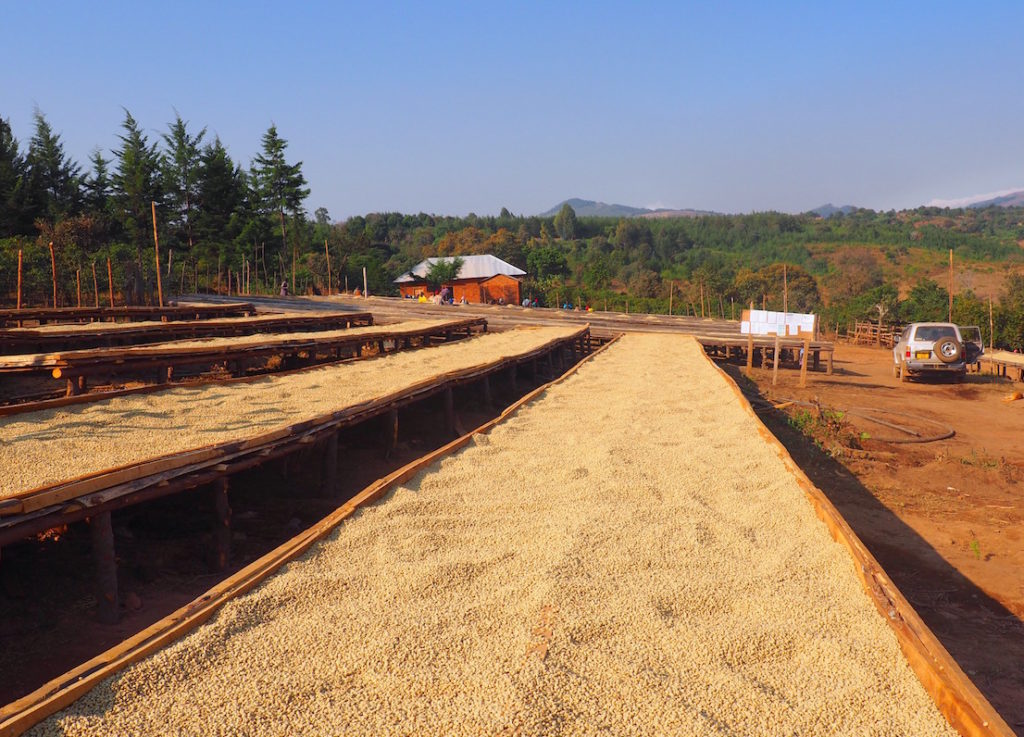Coffee regulations in Tanzania are undergoing major changes, prompted by the country’s prime minister, in time for the 2018/2019 growing season.
The changes are intended to improve profits for farmers and extend their role in the supply chain. Currently, farmers can sell parchment to private buyers or send it through an auction system; in past years, approximately 75 percent of Tanzania’s coffee has gone through the auction.
Going forward, the government has banned the purchase of cherry or parchment at the farm-gate level. Farmers must now sell cherry or parchment to an Agricultural Marketing Cooperative Society (AMCOS), which will deliver the coffees to auction for purchase. Coffees, then, with be traceable to the AMCOS (pronounced am-kos).
Each village can only have one AMCOS, which may initially overwhelm them a bit. For years, InterAmerican’s sister exporting company has worked with 25 farmer groups; 22 of them are now registered as AMCOS, and we’re thrilled for those relationships to continue, though the purchase of their coffees is no longer guaranteed.
The primary challenge for our customers will likely be the added wait time that will be built into the new system. The auction process is likely to add an additional month to delivery times — samples must be submitted, the auction itself must take place, payments must be made. An additional four weeks is likely.
An upside for coffee producers, however, is that the auction enables them to participate much farther along in the supply chain, rather than exiting at potentially the cherry stage. If there are profits to be gained, particularly from a high-quality coffee, the farmer will now technically be positioned to capture that.
Another benefit is that the coffee world may get a new view of what Tanzania is capable of. Many of the country’s highest-scoring coffees are currently among the 25 percent that hasn’t been passing through the auction. When coffees scoring 86 are suddenly among the listings, it may change some minds — and raise prices, to the benefit of farmers and co-ops.
There’s still much work ahead. In the past, exporters, with an interest in securing high-quality coffees, have provided farmers with low-interest loans, to help them buy inputs such as fertilizer. The Tanzania Coffee Board is currently in discussions with the various stakeholders to put in place a structure that will allow farmers to access the financing they require.
We’re hopeful for Tanzania and all efforts to genuinely contribute to the success of its coffee producers. And of course, we’re always ready to talk — please email traders.iacus@nkg.coffee with any questions. •
